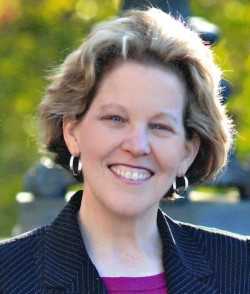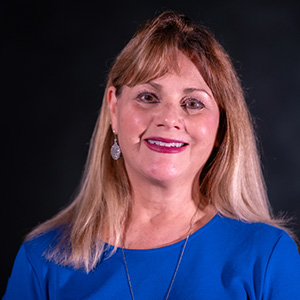Graduate Certificate in Clinical Laboratory Science
Prepares Practicing Medical Laboratory Professionals for the Future
The Graduate Certificate in Clinical Laboratory Science is an on-line 12-credit post-professional course of study for medical laboratory professionals who hold a baccalaureate degree and are certified (BOC-ASCP). The clinical lab science certificate program is designed for practicing professionals who want to advance their knowledge and skills in clinical lab science and develop new proficiencies needed to meet the challenges of a changing profession and health care system. If students are not ready to commit to the Master degree program, but wish to advance their knowledge in clinical laboratory science, the Graduate Certificate in Clinical Laboratory Science is an excellent option.
Advantages of completing the Graduate Certificate in CLS:
- Short course of study provides an excellent way to gain additional knowledge in clinical lab science
- Determine if on-line courses are an effective mode of learning for you
- Credits completed in the Graduate Certificate in CLS may be applied to the Rutgers MS in CLS and DCLS Programs. (Please note: only courses completed within 5 years with a grade of B or better are eligible for transfer)
Our clinical lab science certificate program is:
- 12 credits – 4 courses
- Online
While learning valuable new advanced clinical lab science skills, students have the opportunity to interact on a one-to-one basis with faculty and colleagues from all over the country and internationally through various online asynchronous and synchronous delivery modes/technologies.
Distinguishing features include:
- Flexibility of anytime, anywhere education
- Convenience of entirely online course offerings
- Wealth of faculty expertise in clinical laboratory science
- National and international guest lecturers who are experts in the field
- Career ladder and advanced education opportunities in the MS in CLS and DCLS programs
- Outstanding value of competitive tuition
- Highly regarded university reputation
Students accepted into the clinical lab science certificate program enroll in a non-matriculated status. Completion of the Graduate Certificate in CLS does not guarantee acceptance into other degree programs offered by the Department of Clinical Laboratory and Medical Imaging Sciences or other programs offered by Rutgers University.
Student must maintain a “B” average (GPA 3.0).
Students must complete the program within 3 years (6 semesters) of enrollment.
Admissions Selection Process for the Clinical Laboratory Science Certificate Program
Selection of applicants for admissions to our clinical lab science program is a competitive process that is the responsibility of the program faculty admissions committee. The University places no restrictions on prospective applicants because of their color, creed, race, sex, age, marital status, or national origin. The University recognizes the value of diversity and is committed to providing appropriate support to its student body.
The application deadline is December 15th for the Spring Semester.
*Application, fee, and supportive documents must be submitted by the deadline date.
- Baccalaureate degree in CLS or related science from a regionally accredited US institution or equivalent
- Applicants who have earned a degree from a non-US accredited institution must comply with the applicable University and School policies and submit:
- Official transcripts sent from the non-US institution directly to Rutgers-School of Health Professions
- World Education Services (WES) Evaluation of transcripts
- Only WES evaluation accepted; detailed course and grade evaluation is required
- TOEFL Exam taken within the last 2 years
- TOEFL is NOT required if a Bachelor’s degree or higher has been awarded in the U.S. Please note: If applicant has an Associate degree in the U.S. TOEFL scores are required
- Applicants who have earned a degree from a non-US accredited institution must comply with the applicable University and School policies and submit:
- Professional certification as Medical Laboratory Professional: MLS(ASCP)CM, MLT(ASCP)CM or equivalent
- Overall minimum GPA: 3.0
- Cumulative GPA of 3.0 for science courses
- Official transcripts of undergraduate and graduate coursework from ALL institutions attended.
- Curriculum vitae or resume
- Personal essay addressing career goals and reasons for pursuing the Graduate Certificate in CLS.
- Proficiency in written communication to successfully complete frequent writing assignments, exams, and papers required in online courses
How to apply:
Complete the “Certificate of Study Application Form” including all applicable fees.
- Certificate Application Form and fee
- Official transcripts of undergraduate and graduate coursework from ALL institutions attended
- A copy of current professional certification as a medical laboratory professional (MLS(ASCP)CM, MLT(ASCP)CM or equivalent with BS degree)
- Current resume or curriculum vitae (CV)
- Personal essay addressing career goals and reasons for pursuing the Graduate Certificate in CLS
Non-Matriculated Status Practitioners who are not ready to make the commitment to a graduate program, or who wish to advance knowledge and skills, may take up to 12 credits on a non-matriculated basis. Registration information as a non- matriculated student can be found on the CACE website.
In addition to the one required Molecular Diagnostics course, the student can customize their learning experience to meet their career goals by selecting three clinical lab science elective courses from the list below.
Require CORE Courses: 3 credits
Molecular Diagnostics
Elective Specialization Courses – 9 credits, select 3 courses
Topics in Molecular Diagnostics
Advanced Hematology
Advanced Hemostasis
Clinical Laboratory Data Analysis
Infectious Diseases
Advanced Topics in Clinical Chemistry
Transfusion Practice
Advanced Clinical Immunology
Healthcare Regulations & Laboratory Management
Clinical Laboratory Utilization in Quality Healthcare Delivery
These learning outcomes meet the National Academy of Sciences’ (Institute of Medicine) core competencies for health care professionals, namely, the ability to provide patient-centered care, work in interdisciplinary teams, employ evidence-based practice, apply quality improvement, and utilize informatics. (Institute of Medicine. Health Professions Education: A Bridge to Quality. Washington, DC: National Academies Press, 2003).
- Critically review, appraise, and synthesize the health sciences literature.
- Identify and systematically investigate research questions pertinent to clinical laboratory practice.
- Synthesize new concepts, models and theories through the appropriate application of empirical knowledge and the scientific method to help resolve clinical laboratory and health sciences issues or problems.
- Apply the advanced knowledge and technical skills needed to serve as active contributors and/or leaders in the clinical laboratory science professions.
- Apply current knowledge to evaluate or design more effective ways to deliver clinical laboratory and health-related services.
- Use a variety of information technologies to address both theoretical and practical problems, enhance communication, and disseminate knowledge to applicable audiences and interest groups.
- Demonstrate proficiency in both oral and written communication, using both scholarly and technical formats.
- Work collaboratively with others to advance the scientific bases of knowledge in clinical laboratory science via ongoing scholarship.
- Integrate basic principles of ethics and cultural sensitivity within all interpersonal and professional activities.
For more information, contact program director Deborah Josko, PhD., MLT(ASCP)M, SM.

For more info, contact Catherine Otto, program director.




